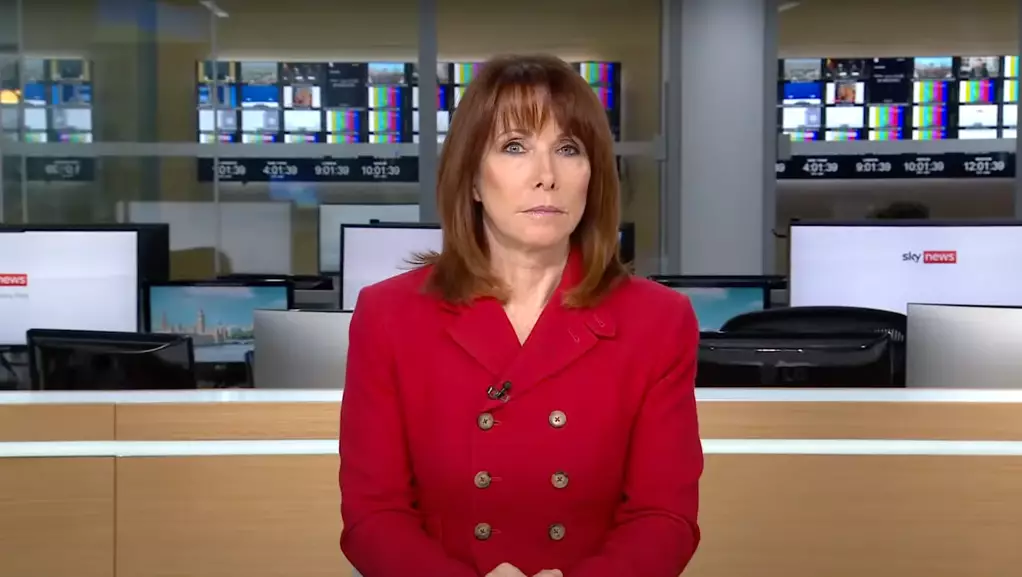Kay Burley’s announcement about her retirement from Sky News not only marks the conclusion of a monumental 36-year career but also signifies a noteworthy period in British journalism. Burley debuted as one of the original presenters at Sky News when it launched in 1989 and quickly established herself as a formidable presence in broadcasting. Her insightful questioning and ability to tackle complex, pressing issues made her a favorite among viewers and a respected figure among peers. As she prepares to step down, her legacy raises questions about the evolution of news broadcasting and the impact of individual journalists on the industry.
For nearly four decades, Burley has been an integral part of Sky News, guiding audiences through both monumental and tragic events. From covering the chaotic days following the 9/11 terrorist attacks to reporting on global conflicts, her career epitomizes the essence of live journalism. Her contributions extend beyond mere reporting; she has set a standard for investigative journalism and transparency, often regarded as a fierce interrogator who kept political leaders accountable. Such a rigorous approach has not only informed the public but has also contributed to a culture of demanding authenticity in news reporting.
The Influence of a Groundbreaking Career
Burley’s influence is reflected in the ways she transformed morning programming at Sky News. By hosting the breakfast show, she catered to a viewing audience that craved both information and engagement, offering a platform where major news stories could be dissected and understood. As she stated during her final appearance, working with “some of the best and hardest working teams in business news” has undoubtedly shaped the landscape of television journalism in the UK.
Beyond the studio, Burley faced her share of controversies, such as the incident in 2020 when she momentarily stepped into the spotlight for breaking COVID-19 regulations. This situation highlighted the practice of public accountability faced by journalists, yet she handled it with a level of humility, acknowledging her mistake and apologizing to viewers and colleagues alike. This incident suggests that, while no one is infallible, taking responsibility is crucial for maintaining trust in journalism.
As Burley exits the stage, the broadcasting landscape continues to evolve, influenced by technological advancements and changing audience preferences. David Rhodes, the executive chairman of Sky News, noted that the organization is on a trajectory toward becoming a “premium video-first newsroom built for the digital future” by 2030. This ambition underscores the necessity for broadcasters to adapt to new media and consumption habits amidst rising competition from outlets like GB News.
The impending question regarding Burley’s replacement signifies broader uncertainties within traditional news programming. With Wilfred Frost being heralded as a frontrunner, the appointment will carry immense responsibility, as this successor must fill the impressive shoes left by Burley while simultaneously appealing to a modern audience. Transitioning from a well-established legacy to a new era poses both challenges and opportunities, as new presenters seek to continue the standard Burley has set while navigating the complexities of digital journalism.
Kay Burley’s retirement brings forth an exciting opportunity for her to pursue personal passions, particularly her love for travel. It is essential to acknowledge that while her journalistic responsibilities will conclude, her voice and perspective on pressing issues will continue to resonate within the field. As a veteran whose influence has been both felt and heard on many levels, her departure invites reflection on the importance of resilience and adaptability, traits that have defined her career.
As the news landscape changes, the lessons learned from Burley’s tenure at Sky reflect both the significance of dedicated journalism and the evolving nature of storytelling in an age of digital immediacy. Her departure doesn’t merely mark the end of an era but also serves as a reminder of the power of informed inquiry in shaping public discourse. While audiences will miss her presence, her legacy will undoubtedly inspire upcoming generations of journalists to elevate their craft and maintain the standards of transparency and integrity she exemplified throughout her career.


Leave a Reply